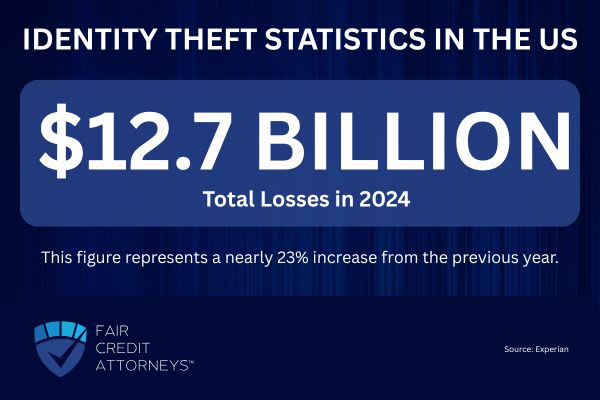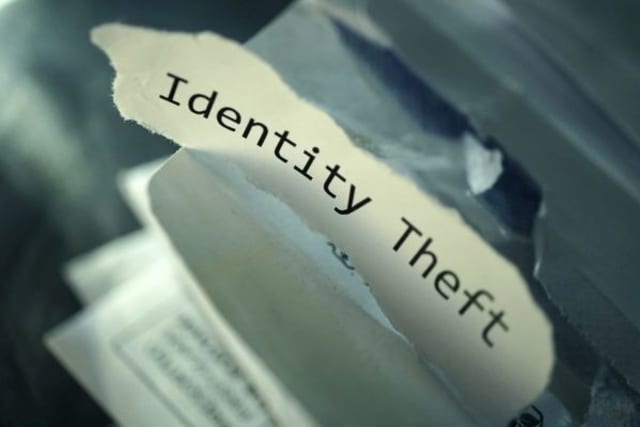In today’s digital age, identity theft has become one of the most common and devastating crimes. Millions of Americans fall victim to identity fraud each year, facing financial losses, damaged credit, and emotional distress.
At Fair Credit Attorneys, we specialize in helping victims of identity theft navigate the legal system, recover their identity, and restore their financial standing.
In this post, we’ll discuss key strategies and tips to prevent identity theft, outline the legal actions you can take if you’re targeted, and explain how to recover your finances and reputation.
What Is Identity Theft?
Identity theft happens when someone illegally gets hold of your personal information and then uses it, usually to make money. This could involve details like your Social Security number, credit card information, or bank account numbers.
Thieves might do things like open new credit accounts in your name, file fake tax returns, or even use your identity if they get into trouble with law enforcement. It’s a serious issue that can have real consequences for you.

How to Detect Identity Theft
It’s a scary thought, but knowing the warning signs can help you catch identity theft early and minimize the damage. Identity theft happens when someone uses your personal information like your name, address, Social Security number, or bank account details without your permission, often to commit fraud.
Here’s how you can tell if your identity might have been stolen:
- Unexpected Account Activity: This is often the first red flag. Look for withdrawals from your bank account you did not make, charges on your credit cards you do not recognize even small ones that might be “test” transactions, or new credit cards arriving in the mail that you did not apply for. Regularly checking your bank and credit card statements is crucial.
- Credit Report Surprises: Get your free credit reports from our guide here. Look for unfamiliar accounts opened in your name, hard inquiries you did not authorize (these happen when someone applies for credit using your information), or sudden drops in your credit score that you cannot explain.
- Missing or Strange Mail: If your regular bills or statements suddenly stop arriving, or you start getting mail for accounts you do not have, someone might have filed a change of address in your name.
- Calls from Debt Collectors: Receiving calls or bills for debts that are not yours is a strong indicator that someone has opened accounts in your name and is not paying them.
- Tax Troubles: If the IRS notifies you that more than one tax return was filed in your name, or that you have income from an employer you do not work for, it could be a sign of tax identity theft.
- Medical Bill Mix Ups: Getting bills for medical services you did not receive, or having your health plan reject a legitimate claim because records show a condition you do not have, could indicate medical identity theft.
- Denied Applications: If you are unexpectedly denied credit, a loan, or even a job, despite having good credit history, it could be due to fraudulent activity on your reports.
If you notice any of these red flags, it is essential to act quickly. Freezing your credit, reporting the theft to the Federal Trade Commission (FTC), and contacting affected companies are crucial first steps to limit the damage.
Prevention Tips: How to Protect Yourself from Identity Theft
Prevention is your first and best line of defense. Here are practical strategies you can implement today:
1. Safeguard Personal Information
Avoid sharing personal information such as your Social Security number, bank account info, or date of birth unless absolutely necessary. Be especially cautious online and on phone calls from unknown sources.
2. Use Strong, Unique Passwords
Create strong passwords for all accounts and avoid reusing the same password across multiple platforms. Use two-factor authentication wherever possible, and consider using a reputable password manager.
3. Monitor Your Credit Regularly
Check your credit reports from the three major bureaus—Equifax, Experian, and TransUnion—at least once a year. You can get a free annual credit report at AnnualCreditReport.com. Look for unfamiliar accounts or suspicious activity.
4. Shred Sensitive Documents
Dispose of bank statements, credit card offers, and any other documents that contain personal information using a cross-cut shredder.
5. Beware of Phishing Scams
Don’t click on links or download attachments from unknown emails or texts. Identity thieves often use phishing to trick victims into revealing sensitive information.
6. Secure Your Devices
Install antivirus and anti-malware software on your computer and mobile devices. Keep your operating systems and apps updated to fix security vulnerabilities.
7. Freeze Your Credit
A credit freeze restricts access to your credit report, making it difficult for identity thieves to open new accounts in your name. You can freeze your credit for free at each of the three credit bureaus.

Legal Steps to Take if You’re a Victim
If you discover that your identity has been stolen, swift action can limit the damage and help restore your credit and financial integrity. Here are the legal steps you should take:
1. File a Police Report
Report the crime to your local police department. A police report serves as official documentation, which will be critical when dealing with creditors, banks, or government agencies.
2. Report to the Federal Trade Commission (FTC)
Visit IdentityTheft.gov to report the incident and create a personalized recovery plan. The FTC will provide documentation and letters to send to credit bureaus and debt collectors.
3. Place Fraud Alerts
Contact one of the three credit bureaus to place a fraud alert on your credit report. The alert notifies lenders to take extra steps to verify your identity before extending credit.
4. Close Fraudulent Accounts
Contact the fraud department of each company where a fraudulent account was opened or misused. Request the accounts be closed immediately and provide copies of your police and FTC reports.
5. Dispute Inaccurate Information
Use the documentation from your FTC report to dispute any inaccurate or fraudulent information with the credit bureaus. Under the Fair Credit Reporting Act (FCRA), you have the right to dispute incorrect credit information and request that it be removed.
6. Consult a Fair Credit Attorney
Our team at Fair Credit Attorneys can help you dispute fraudulent debts, remove false information from your credit reports, and hold creditors accountable for any violations of your rights under federal laws such as FCRA, the Fair Debt Collection Practices Act (FDCPA), and the Fair Credit Billing Act (FCBA).
Recovering Your Identity and Finances
Restoring your identity and finances after a theft can be complex, but it’s possible with persistence and the right legal support. Here’s how:
1. Work with Credit Repair Professionals
Credit repair experts can help you systematically address each issue on your credit report and ensure that only accurate, verified information remains.
2. Track and Document Everything
Keep a detailed record of every phone call, email, letter, or form related to your case. This documentation will help you stay organized and support your claims if you need to escalate your case legally.
3. Monitor Your Credit Going Forward
Sign up for ongoing credit monitoring services to detect suspicious activity early and act quickly.
4. Consider Identity Theft Insurance
Some insurance providers offer identity theft protection that includes recovery assistance, legal fees, and reimbursement for financial losses.
Taking Control: Protect Your Identity
Identity theft is a serious and growing threat, but with proactive steps and the right legal support, you can protect yourself and recover from the damage.
At Fair Credit Attorneys, we’re here to stand with you every step of the way, from prevention to resolution. If you or someone you know has been the victim of identity theft, don’t wait – Contact us today for a free consultation.



